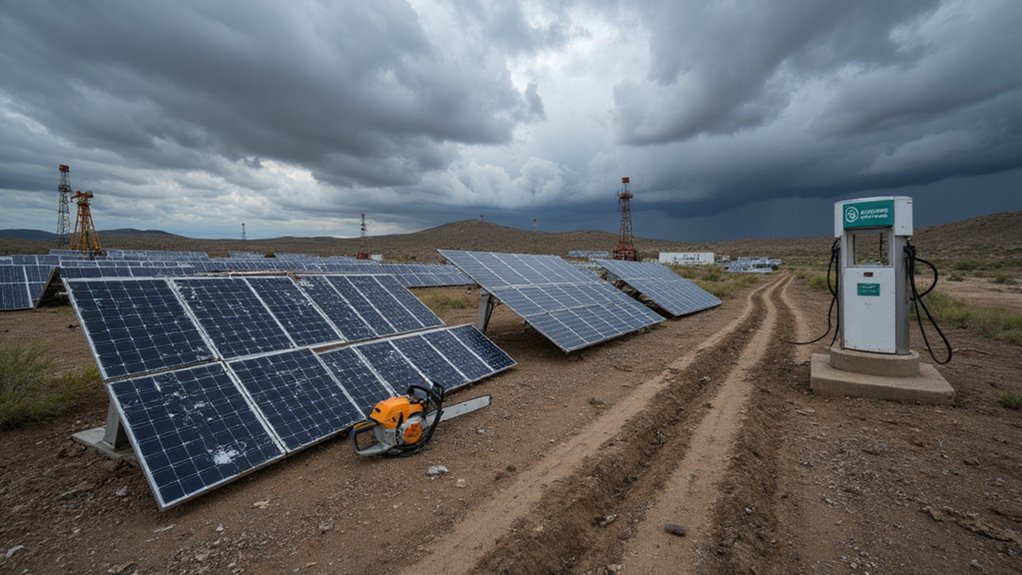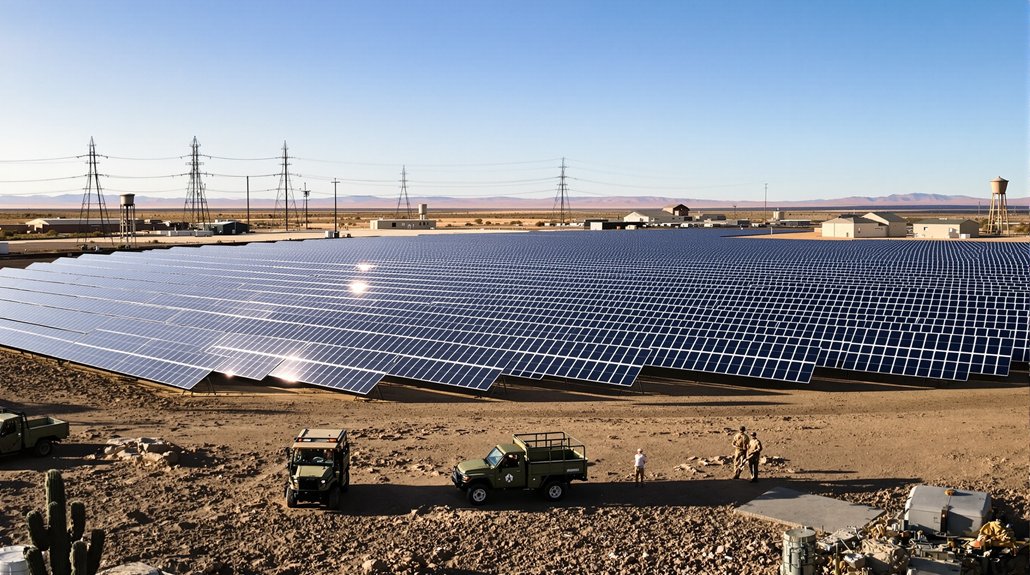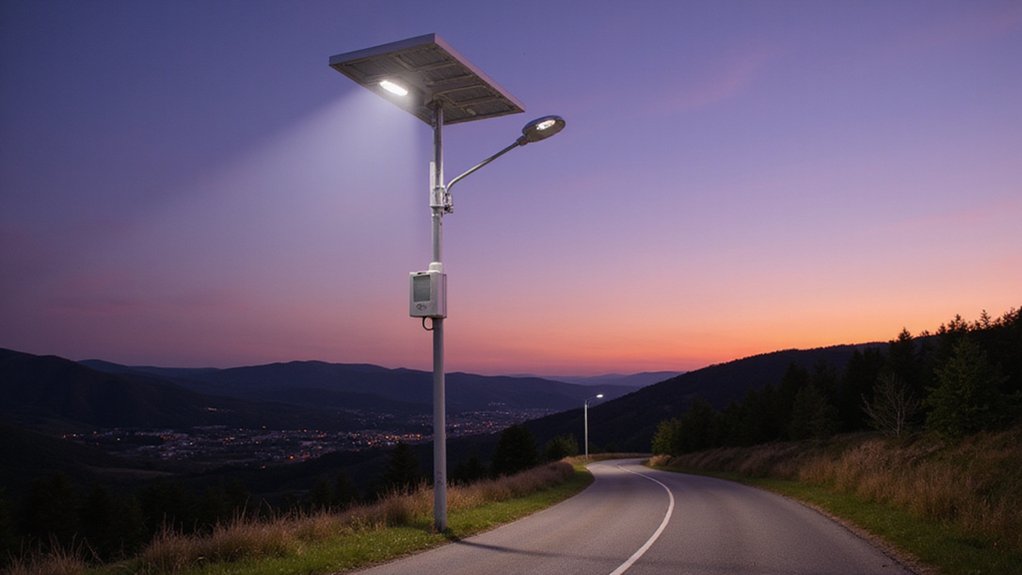Georgia’s clean energy explosion results from multiple contributors working in harmony. Solar power has grown 41 times since 2015, while renewable energy jumped from 0.2% to 6% of electricity consumption. Government incentives, private investments, and community initiatives have created over 82,000 jobs and attracted $31.3 billion in EV investments. Electric vehicle adoption increased sevenfold since 2014. This remarkable transformation reflects a collaborative achievement rather than any single entity’s glory.
While Georgia was once known primarily for its peaches and peanuts, the state has now emerged as a powerhouse in clean energy. The numbers tell an impressive story of growth. Since 2015, solar power generation has increased 41 times, now producing enough electricity to power over 866,000 homes. In 2023 alone, Georgia produced 8,103 gigawatt-hours of solar energy, a dramatic rise from just 218 gigawatt-hours in 2014.
Georgia’s agricultural heritage now meets a clean energy revolution, with solar generation skyrocketing to power hundreds of thousands of homes.
This clean energy boom extends beyond solar panels. Renewable energy now accounts for 6% of Georgia’s electricity consumption, up from a mere 0.2% in 2015. The state has also begun investing in battery storage, with 0.15 gigawatts of capacity on the grid in 2024. In fact, Georgia only started reporting battery storage capacity in 2021, showing how recent this energy innovation has been adopted.
The economic impact is equally significant. More than 82,000 Georgians now work in clean energy jobs. Georgia leads the nation in electric vehicle investments, attracting $31.3 billion. The state government is contributing to this shift too, investing $273 million in energy efficiency improvements for public facilities. These initiatives have generated tax revenues of $36.7 million from clean power projects for state and local governments.
Electric vehicles are increasingly common on Georgia roads. The state had 85,050 registered EVs in 2023, seven times more than in 2014. To support these vehicles, Georgia now has 1,859 charging stations with 6,175 charging ports – five times more than in 2015. Georgia’s EV growth reflects the global trend toward smart technologies that enhance energy efficiency and reduce carbon emissions.
Federal and state incentives have helped drive this change. The Inflation Reduction Act offers tax credits for renewable energy and electric vehicles. In 2023, over 82,000 Georgia households used federal tax credits for renewable energy or efficiency improvements. Georgia adds its own incentives, including commercial building tax credits and small business support.
Cities are also taking initiative. Atlanta and Athens have committed to 100% clean energy for government properties by 2035. Savannah, Clarkston, and Augusta are developing similar goals.
The benefits extend to energy efficiency, with measures installed in 2023 set to save enough electricity to power over 515,000 homes for a year. As Georgia continues this clean energy shift, both the environment and economy stand to gain.
References
- http://frontiergroup.org/wp-content/uploads/2025/04/Renewables-FS-Apr25_GA.pdf
- https://www.gachamber.com/news/82000-georgians-employed-in-multi-billion-dollar-clean-energy-economy/
- https://environmentamerica.org/georgia/center/articles/5-surprising-facts-about-renewable-energy-growth-in-georgia/
- https://energyinnovation.org/wp-content/uploads/2024/09/How-Project-2025-Could-Affect-Georgia.pdf
- https://scienceforgeorgia.org/wp-content/uploads/2024/11/About-Georgias-Clean-Energy-Plan-2024.pdf








